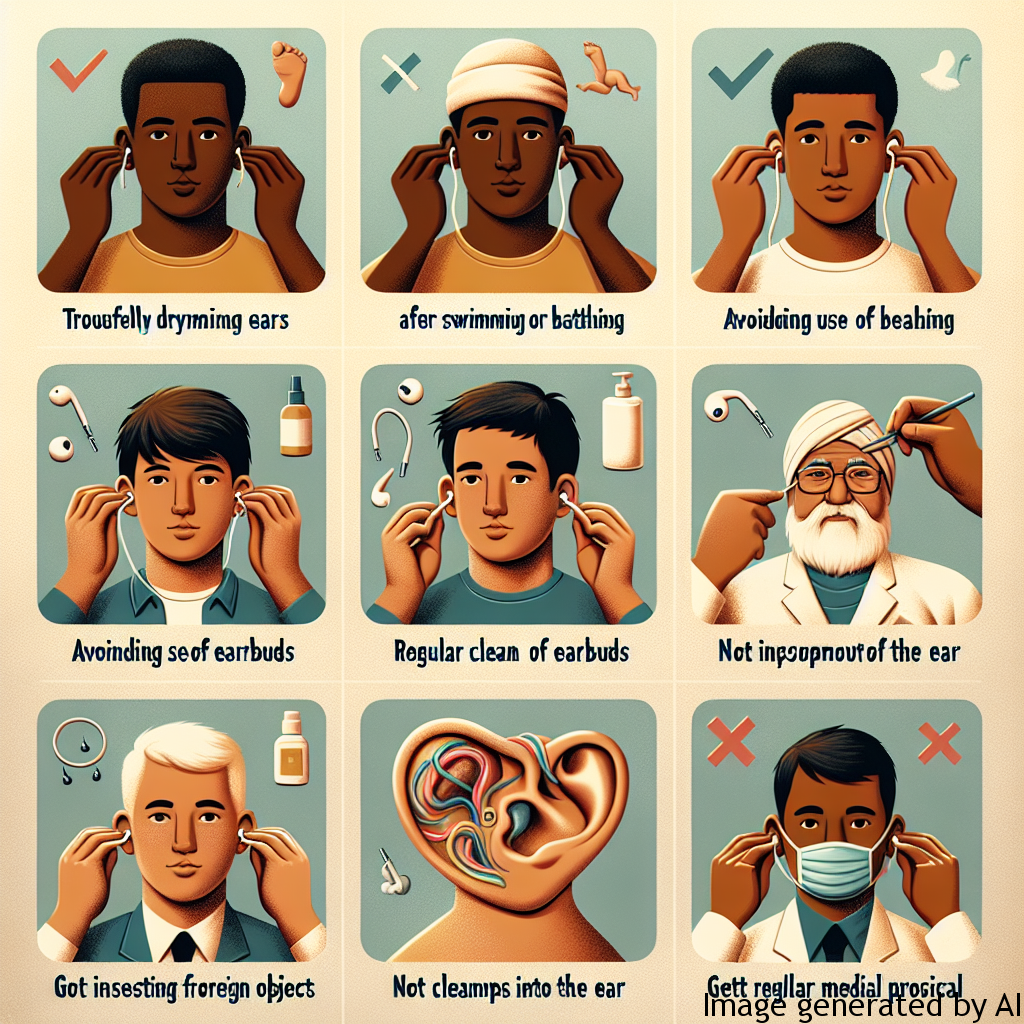Introduction
Ear diseases can result in discomfort, pain, and occasionally serious complications. They come in many forms, from mild infections and earwax buildup to more serious conditions like tinnitus or Meniere’s disease. Thus, it’s essential to take steps to prevent ear diseases so you can maintain good hearing and overall ear health.
General Risk Factors and Their Effect on Ear Health
Several factors can increase the risk of developing ear disease.
Age
While ear diseases can affect persons of all ages, certain types become more likely as you age. For instance, age-related hearing loss, known as presbycusis, is caused by changes in the ear that occur as you grow older.
Occupational Hazards
Exposure to loud noise, particularly over extended periods of time, can contribute to the development of hearing loss or tinnitus. Occupations like construction, farming, or any industry that involves exposure to loud machinery for extended periods can pose a risk to ear health.
Lifestyle Choices
Certain lifestyle factors can also impact ear health. For instance, smoking has been linked to increased likelihood of tinnitus and potential hearing loss.
Examples of How Risk Factors Can Influence Ear Health
Unmitigated risk factors can contribute to several ear health issues. An example is noise-induced hearing loss which occurs after prolonged exposure to loud sounds over 85 decibels, like noisy machinery at work or rocketing music at concerts. Furthermore, consumptive products containing nicotine are known to tighten blood vessels, including those in your ear, leading to potential hearing loss.
Recommendations for Ear Health Improvement Considering Risk Factors
Many of the risk factors associated with ear diseases can be managed or mitigated.
Maintain a Healthy Lifestyle
Regular exercise, a balanced diet, and avoiding harmful habits such as smoking and excessive alcohol consumption can contribute positively to overall health, including that of the ears.
Manage Exposure to Loud Noises
Whenever possible, limit exposure to loud noises. When unavoidable, protect your ears with earplugs or earmuffs specifically designed to reduce noise levels.
Regular Check-ups
Early detection of ear diseases and successful treatment are aided by regular medical check-ups. Essentially, a health professional can advise on ear care and detect any medical issues before they become severe.
Conclusion
Understanding the risk factors for ear diseases and taking steps to manage them can significantly reduce your chances of experiencing poor ear health. Lifestyle changes and regular medical check-ups play a significant role in maintaining good ear health. Remember, prevention is always better than cure.

